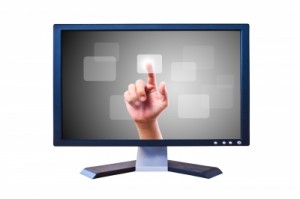So, the KPMG bi-annual Media and Entertainment Barometer show that we are finally starting to watch TV via BBC iPlayer, ITV player, 4oD, LoveFilm and Netflix. Big deal.
And soon we’ll all have digital TV in the UK. Yawn. And we’re all getting smartphones. Tell me something I don’t know.
If you put it all together, it doesn’t sound desparately interesting – but there’s a big storm brewing and you should think about it for a minute. While we’re all busy watching Downton Abbey, Strictly Come Dancing and Sherlock we’re missing the bigger picture of what it means for brands, marketers and PRs when the shift happens and people move away from watching programmes in real time.
The biggest challenge to face TV advertising and mass communication is now ready to pounce.
I talked about Two-Screening in March last year, the phenomena of watching TV whilst using your smartphone to surf products related to the thing we’re watching or just scrolling social networks. Well, that was just the start.
By Christmas this year we’ll all have digital TV in the UK with access via smart TVs to streaming, real-time ‘pause’ and the ability to skip adverts.
What will this mean for the big brand communication activity (advertising, sponsorship) that brands currently pay TV advertisers big bucks for to get through to the huge numbers of consumers?
Streaming TV means that you and I have the ability to be TV schedulers whilst blocking the commercials which pay for them (with the BBC excepted – we’re all paying the licence fee anyway!). The only route to the smart consumers who create their own schedules will now be via the content – which brings us to product placement. The lovely Maserati Quattroporte in the recent BBC TV series on Sicily, the Audi which appears in The Hotel Inspector, the occasional Volvo and Land Rover in Grand Designs – it’s all part of the future and needs real planning and attention as core marketing opportunities, not just add-ons at the end.
Today, real-time, live TV dominates – and probably always will for the majority of TV viewing. But effective marketing is about knowing your customer, effective profiling, understanding niches, getting to the target group with the right message via the right media at the right time.
How will you know if your target group are watching the programme you have paid to advertise around in real-time and being exposed the advert, or are watching the streamed version later and skipping your ads?
As marketers it’s easy for us to to tune-out of from the wall of noise about developments in TV and digital media – but can I suggest you do take some time this week to reflect on how the convergence of live broadcast and streaming media is going to affect your brand. You don’t have to be Unilever to be worried about the future of TV advertising.
Remember when music streaming arrived? It didn’t kill commercial radio, but it has changed listening habits and created niches, segments and opportunities for brands.
Are you ready to take advantage of the new opportunities and find ways to capitalize on the opportunity or will you just go with the flow and see what happens in the TV stream?
About Al Clarke – I am a marketing and communications specialist who has worked in the motor industry at board level since 1997. I have held senior positions in global brands such as Ferrari and the BBC including a decade working as a journalist.I am a member of the Institute of Directors, the Public Relations Consultants Association, an expert member of the digital community Smart Insights and Life President of the Motor Industry Public Affairs Association.I speak regularly in the field of marketing communications to businesses and the media with particular reference to digital media. Find me on Twitter @alclarkeltd and LinkedIn.

